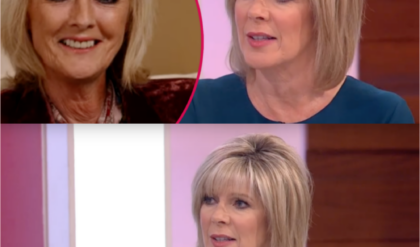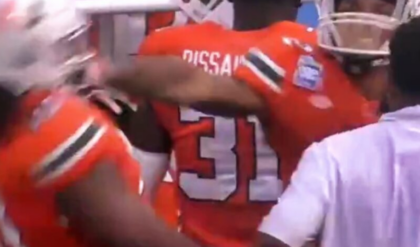Too Hot to Handle: 20 Songs So Controversial They Got Banned

The modern day country music fan is quite a bit more tolerant of edgy or controversial songs than fans were 30 or 40 years ago, and as a result, there are fewer banned country songs today.
Blame it on looser morals — or blame it on a wider variety of options — should a song that agitates come on the radio. This doesn’t mean big-time like Rascal Flatts and Kacey Musgraves have escaped outright bans, however.
Most of the banned songs on this list were blacklisted due to lyrical or video content, but a few of them — as is the case for tracks by Carrie Underwood and Morgan Wallen — got the outs from country radio for reasons totally unrelated to the music itself. Some of the bans seem silly, outdated or prim by today’s standards, while others were banned by reasons that still hold water for many listeners.
A couple of artists took a career hit when their songs were banned. Garth Brooks’ ban even resulted in a single of his missing the Top 10 for the first time ever in his career. However, most of these banned songs went on to become huge hits, despite or even because of their outlaw status at country radio. For the most part, this list proves that there’s no better press than having a song blacklisted by the industry.
Flip through the gallery below to see 20 of the biggest country radio bans. Sound off in the comments to let us know which artists you think deserved it — and which big controversial songs we missed.
Too Hot to Handle: 20 Country Songs That Got Banned
What do Morgan Wallen, Loretta Lynn and Lil Nas X all have in common? They — and many more country artists — have all released songs that wound up getting banned on country radio. Here are some of the most controversial country songs of all time.
Gallery Credit: Carena Liptak

George Strait and Alan Jackson, “Murder on Music Row”
Cooper Neill, Getty Images
George Strait and Alan Jackson, “Murder on Music Row”
Though this song wasn’t banned at country radio, per se — it was never officially released as a single — it certainly ruffled plenty of feathers in the country music industry, as a direct callout to the commercialization of country music and the pop influences Strait and Jackson saw as “watering down” the genre. Neither star’s label promoted the song. Though the “murder” in Strait and Jackson’s “Murder on Music Row” was metaphorical, there was a real-life murder that took place on Nashville’s Music Row in 1989: An employee of trade publication Cashbox Magazine named Kevin Hughes was shot and killed while exiting a record studio. After years of investigation, police built a case against another Cashbox employee named Richard D’Antonio, who was said to have arranged the murder in the midst of a payola scheme that Hughes was allegedly threatening to expose.

Garth Brooks, “We Shall Be Free”
Getty Images
Garth Brooks, “We Shall Be Free”
After a 13-song hot streak, Garth Brooks missed country radio’s Top 10 for the very first time in his career with “We Shall Be Free” (it landed at No. 12, so it wasn’t too far off). That’s because the song was banned by some stations due to its apparent support of LGBTQ+ rights in a lyric that called for a world in which “we’re free to love anyone we choose.” That line was part of a larger message, imaging world without racism, hunger, pollution, injustice, homelessness and more.

Eric Church, “Smoke a Little Smoke”
Kevin Winter, Getty Images
Eric Church, “Smoke a Little Smoke”
Sure, Willie Nelson had been doing it for decades, but label executives still advised against it when Eric Church decided to release this song, complete with lyrics about smoking marijuana, to country radio. Sure enough, some stations weren’t down with the Chief’s drug references, but the song was still a Top 20 hit.

Lil Nas X, “Old Town Road”
Frazer Harrison, Getty Images
Lil Nas X, “Old Town Road”
One of country music’s very first major social media viral hits, “Old Town Road” quickly shot Lil Nas X into cross-genre superstardom. The song started climbing the Billboard country charts soon after its independent release in late 2018. But some radio programmers had objections to the country-rap style, and Billboard removed it from chart consideration on the grounds that the song wasn’t “country enough” to count as a country hit. A remixed version with a verse from Billy Ray Cyrus upped the track’s country credentials a bit, and Cyrus also pointed out that, as a singer with a banned song in his catalog, Nas X was following in the footsteps of outlaw greats like Merle Haggard and Loretta Lynn.

Rascal Flatts, “I Melt”
Jason Kempin, Getty Images
Rascal Flatts, “I Melt”
While this song didn’t run into any controversy on the radio, it did hit a road bump when the music video debuted. That’s because the clip contains a blink-and-you’ll-miss-it shot of bandmate Joe Don Rooney’s bare butt. The video became the first on CMT to show nudity, and many fans called for its removal from the network as well as Great American Country (GAC). GAC removed “I Melt”‘s video from rotation, but CMT held fast and continued to run it, and it eventually achieved the top spot on the network’s Top 20 Countdown.

Loretta Lynn, “The Pill”
Hulton Archive/Getty Images
Loretta Lynn, “The Pill”
Ever the trailblazer, Loretta Lynn saw multiple singles get removed or criticized for their controversial subject matter during the course of her career. However, none of those looms larger than “The Pill,” with its references to birth control and women who openly enjoy sex. “The Pill” was banned in 1975, and it’s still a pretty controversial choice for country radio today: According to Time (which cited data from Luminate, formerly Nielsen Music), the song was only played one time on a country radio station in 2022.

Kitty Wells, “It Wasn’t God Who Made Honky Tonk Angels”
YouTube
Kitty Wells, “It Wasn’t God Who Made Honky Tonk Angels”
Once again, one of country’s classic female trailblazers runs into controversy. Kitty Wells’ 1952 single, “It Wasn’t God Who Made Honky Tonk Angels,” was banned by the NBC network and the Grand Ole Opry for pointing out a massive — and prevalent, all these years later — double standard between women and men. As a 33-year-old housewife and mother, Wells objected to the idea that societal “moral decay” came from women being in the home more infrequently, and wrote her song as a fiery return shot to Hank Williams’ depiction of honky-tonking “wild women” in his hit, “The Wild Side of Life.”

Morgan Wallen, “7 Summers”
Matt Winkelmeyer
Morgan Wallen, “7 Summers”
Much like the ban on the Chicks that had taken place 18 years earlier, Morgan Wallen’s exclusion from country radio didn’t have a whole lot to do with the song itself — it had to do with his behavior. In early 2021, “7 Summers” was his radio single, and came off his just-released Dangerous: The Double Album. But Wallen found himself embroiled in a massive scandal after video emerged that showed him hurling a racist slur at the end of a night of drinking. He was pulled from rotation on radio stations across the country, and his label even put his contract on “indefinite hiatus.” But unlike the Chicks, whose radio career never recovered, Wallen was back at the No. 1 spot on country radio by the following year.

Merle Haggard, “Okie From Muskogee”
Ethan Miller, Getty Images
Merle Haggard, “Okie From Muskogee”
Released in 1969, Merle Haggard’s “Okie From Muskogee” was timely: “Okie” was an enduring slur for an Oklahoman that had arisen during the Great Depression, and the U.S. was embroiled in the continuing — and increasingly controversial — Vietnam War. Haggard has said that his song was intended as a “protest to the protesters” during the war, but many listeners didn’t pick up on the subtler points of the lyrics. No matter what Haggard’s intent was, there were too many hot-button issues mention in “Okie From Muskogee” for many radio programmers to feel comfortable with the song, and it was removed from airplay.

Kacey Musgraves, “Follow Your Arrow”
Neilson Barnard, Getty Images
Kacey Musgraves, “Follow Your Arrow”
Kacey Musgraves’ free-wheeling “Follow Your Arrow,” off her breakout 2013 album Same Trailer Different Park‘ is all about being true to the things that make you happy — but apparently, the song was a little too open-minded for the country music industry. Musgraves’ performance of “Follow Your Arrow” on the 2013 CMA Awards was censored multiple times, including her signature call to “roll up a joint.” The song’s impact at country radio got dinged for some other edgy lyrical content — including support of same-sex relationships — but it still crested at No. 10 on the Billboard Hot Country Songs chart.

Deana Carter, “Strawberry Wine”
Jason Kempin, Getty Images
Deana Carter, “Strawberry Wine”
Deana Carter’s signature song, “Strawberry Wine,” was a little too spicy for some country radio listeners. The No. 1 hit from 1996 describes young love and a loss of innocence — completely with heady, relatable details — and some stations flinched at its salacious and sultry references to sex. Still, the song is a staple of not just Carter’s career, but ’90s country music altogether — Garth Brooks even named it as his favorite ’90s country song.

Carrie Underwood, “Before He Cheats”
Kevin Winter, Getty Images
Carrie Underwood, “Before He Cheats”
That’s right: Even an American Idol champ has been banned on country radio! However, Underwood’s radio freeze wasn’t the result of controversial lyrics or a scandal in her personal life — it was because her husband, hockey pro Mike Fisher, was traded from the Ottawa Senators to the Nashville Predators. Outraged Ottawa stations banned Underwood’s music, including her massive hit “Before He Cheats,” from airplay as retaliation for the trade.

Conway Twitty, “You’ve Never Been This Far Before”
Reg Burkett/Keystone/Getty Images
Conway Twitty, “You’ve Never Been This Far Before”
It’s easy to see why not all radio stations were a fan of Conway Twitty’s salacious 1973 single, “You’ve Never Been This Far Before”: It’s a titillating — and frankly, for the times, pretty graphic — account of a man who assures his partner he’ll still love her, even after they have sex for the first time. Hey, country music is about three chords and the truth, and these lyrics are nothing but plain-spoken honesty about the more intimate parts of a relationship. Though some stations passed on “You’ve Never Been This Far Before,” the song was still a big hit for Twitty, ultimately landing him at No. 1.

Martina McBride, “Independence Day”
Jason Kempin, Getty Images
Martina McBride, “Independence Day”
With its power chorus, soaring vocals and triumphant refrain of “Let freedom ring,” many listeners interpreted Martina McBride’s “Independence Day” as a jubilant statement of patriotism. Sean Hannity even used the song on his radio show, and Sarah Palin sampled it as her introductory song during her campaign for Vice President. But those who listened more closely to the lyrics knew the truth: The song tells a story of a wife and daughter who finally get out from under the thumb of an abusive man — through a fiery, grisly “revolution.” The song was never officially banned, but some stations who got McBride’s true meaning chose not to put “Independence Day” on the air.

Little Big Town, “Girl Crush”
Jon Kopaloff, Getty Images
Little Big Town, “Girl Crush”
Little Big Town’s “Girl Crush” remains one of their biggest hits to date, but some fans weren’t too thrilled when the band first released it to radio back in late 2014. Lyrics like “I wanna taste her lips, yeah cause they taste like you” ruffled feathers for their apparent reference to same-sex love, and according to the Hollywood Reporter, some stations even got phone calls accusing them of “promoting the gay agenda” and threatening to boycott the channel.

Brad Paisley, “Accidental Racist”
Jason Davis, Getty Images
Brad Paisley, “Accidental Racist”
Brad Paisley and rapper LL Cool J were hoping to start a conversation about broad social inequities with their 2013 duet, “Accidental Racist,” but the song was broadly deemed a miss. At best, it was an awkward, but well-intentioned effort to open a door to change, especially in the country music format. At worst, it was offensive, with lines like “If you don’t judge my gold chains, I’ll forget the iron chains.” Once again, the song wasn’t exactly banned — it peaked just outside the Top 20 on the country charts — but it was largely critically reviled, and parodied during a skit on Saturday Night Live.

Willie Nelson, “Cowboys are Frequently Secretly Fond of Each Other”
Terry Wyatt, Getty Images
Willie Nelson, “Cowboys are Frequently Secretly Fond of Each Other”
In 2006, Willie Nelson covered Latin country artist Ned Sublette’s “Cowboys Are Frequently Secretly Fond of Each Other.” This Western waltz about same-sex love on the plains of west Texas also paints gender as being less black-and-white than it seems, stating that “inside every man, there’s the feminine” and “inside every lady, there’s a deep manly voice loud and clear.” With the recent release of the film Brokeback Mountain — for which Nelson had recorded a song — it seemed that fans were ready to hear Nelson’s pro-LGBTQ+ message, and sure enough, “Cowboys” racked up plenty of listeners when it was released as an iTunes singles. Still, several radio stations passed on the song — and not only because of the F-bomb Nelson drops in the third verse.

Tanya Tucker, “Would You Lay With Me (In a Field of Stone)”
Jason Kempin, Getty Images
Tanya Tucker, “Would You Lay With Me (In a Field of Stone)”
Sure, Tanya Tucker’s 1973 release, “Would You Lay With Me (In a Field of Stone)” was a little racy, with lines like “If my needs were strong, would you lay with me?” But the words themselves certainly weren’t the most scandalous thing country radio had ever seen. What really caused stations to pull this single from rotation was the fact that Tucker was only 15 years old when she recorded it.

The Chicks, “Travelin’ Soldier”
Timothy Norris, Getty Images
The Chicks, “Travelin’ Soldier”
In this case, it wasn’t the content of the song itself that radio stations found unacceptable, but rather the context. The Chicks put out “Travelin’ Soldier” in 2002, and it quickly reached No. 1, but was pulled from rotation — along with the rest of their catalog — after the band’s infamous March 2003 criticism of President George W. Bush’s role in the U.S. invasion of Iraq. By the end of that month, “Travelin’ Soldier” had gone from the No. 1 spot to disappearing off the charts entirely.

Tim McGraw, “Red Ragtop”
Frazer Harrison, Getty Images
Tim McGraw, “Red Ragtop”
“Red Ragtop” was a hit for Tim McGraw back in 2002, despite the fact that some stations pulled it due to an apparent reference to an abortion. McGraw subsequently told USA Today that while the song’s storyline does include an abortion — a couple makes the decision “not to have a child” — its larger message is one of the ups and downs of young love.





